Central Auckland > Private Hospitals & Specialists >
Kākāriki Hospital - ENT (Ear, Nose and Throat) Surgery
Private Surgical Service, ENT/ Head & Neck Surgery
Description
Kākāriki Hospital is an elective surgical hospital in Greenlane, Auckland that provides a substantial range of surgical procedures for both adults and children.
ENT (“Ear, Nose, Throat”) also known as Otolaryngology surgery is a medical specialty practiced by ENT surgeons.
There are numerous types of ENT surgery used in the treatment of various conditions that affect the ear, nose, and throat regions, including some procedures to the head and neck region.
Click here for information about your stay, including what to bring, admission and discharge processes and care when you get home.
Consultants
-
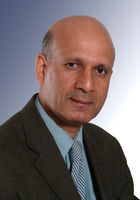
Mr Zahoor Ahmad
ENT Surgeon
-

Dr Melanie Collins
ENT Surgeon
-

Mr Michael Davison
ENT Surgeon
-

Dr Sandro De Paiva Leite
ENT Surgeon
-

Mr Joseph Earles
ENT Surgeon
-
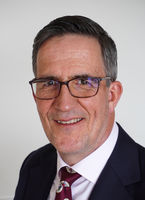
Mr Francis Hall
ENT Surgeon
-

Dr James Johnston
ENT Surgeon
-

Associate Professor Murali Mahadevan
ENT Surgeon
-
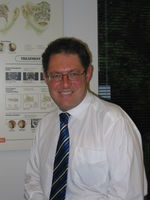
Mr David Mills
ENT Surgeon
-

Dr Nicola Mills
ENT Surgeon
-
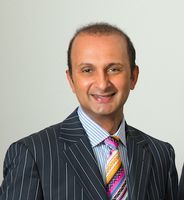
Mr Salil Nair
ENT Surgeon
-

Mr Sumit Samant
ENT Surgeon
-

Mr Angus Shao
ENT Surgeon
-

Dr Salesh Srikewal
ENT Surgeon
-
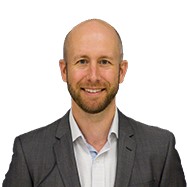
Dr Graeme van der Meer
ENT Surgeon
-

Dr David Vokes
ENT Surgeon
-

Mr Justin Wong
ENT Surgeon
Ages
Child / Tamariki, Youth / Rangatahi, Adult / Pakeke, Older adult / Kaumātua
Fees and Charges Categorisation
Fees apply
Fees and Charges Description
Click on the link to find information about payment options
Languages Spoken
English
Procedures / Treatments
Your adenoids may be removed as part of a tonsillectomy. This operation is also performed through your mouth.
Your adenoids may be removed as part of a tonsillectomy. This operation is also performed through your mouth.
A tiny camera attached to a long tube is inserted through your nose or mouth and passed down through the airways into your lungs. This allows the surgeon to make a diagnosis either by seeing directly what is causing the problem or by taking a small tissue (biopsy) or lung secretion sample.
A tiny camera attached to a long tube is inserted through your nose or mouth and passed down through the airways into your lungs. This allows the surgeon to make a diagnosis either by seeing directly what is causing the problem or by taking a small tissue (biopsy) or lung secretion sample.
An incision (cut) is made behind your ear and the skin pulled back exposing the mastoid bone. A hole is drilled through this bone to expose the cochlear. The electrodes of the cochlear implant are inserted into the cochlear while the receiver part of the implant is embedded into the skull just underneath the skin. The skin is then replaced back over the implant.
An incision (cut) is made behind your ear and the skin pulled back exposing the mastoid bone. A hole is drilled through this bone to expose the cochlear. The electrodes of the cochlear implant are inserted into the cochlear while the receiver part of the implant is embedded into the skull just underneath the skin. The skin is then replaced back over the implant.
A tiny camera attached to a tube (endoscope) is inserted into your nose. Very small instruments can be passed through the endoscope and used to remove small pieces of bone and soft tissue. This opens up the ventilation and drainage pathways in the outer wall of your nose.
A tiny camera attached to a tube (endoscope) is inserted into your nose. Very small instruments can be passed through the endoscope and used to remove small pieces of bone and soft tissue. This opens up the ventilation and drainage pathways in the outer wall of your nose.
This operation is performed through the ear canal. A hole is made in the eardrum and the middle ear drained. A small hollow tube (grommet) is placed in the eardrum hole which allows air into the middle ear.
This operation is performed through the ear canal. A hole is made in the eardrum and the middle ear drained. A small hollow tube (grommet) is placed in the eardrum hole which allows air into the middle ear.
A tiny camera attached to a long tube is inserted into your mouth and passed down through your pharynx into your oesophagus. This allows the surgeon to make a diagnosis either by seeing directly what is causing the problem or by taking a small tissue sample (biopsy).
A tiny camera attached to a long tube is inserted into your mouth and passed down through your pharynx into your oesophagus. This allows the surgeon to make a diagnosis either by seeing directly what is causing the problem or by taking a small tissue sample (biopsy).
Nasal polyps are removed by inserting small instruments through your nostrils which can grasp and cut out the polyps.
Nasal polyps are removed by inserting small instruments through your nostrils which can grasp and cut out the polyps.
Small cuts (incisions) are made either on the inside or outside (in the creases) of the nose. Excess bone and/or cartilage are removed and the nose reshaped.
Small cuts (incisions) are made either on the inside or outside (in the creases) of the nose. Excess bone and/or cartilage are removed and the nose reshaped.
Tonsils are removed in an operation performed through your mouth. The tissue between your tonsils and throat is cut and your tonsils removed.
Tonsils are removed in an operation performed through your mouth. The tissue between your tonsils and throat is cut and your tonsils removed.
This operation repositions the nasal septum and is performed entirely within your nose so that there are no external cuts made on your face.
This operation repositions the nasal septum and is performed entirely within your nose so that there are no external cuts made on your face.
Visiting Hours
Visiting hours are between 10.00am and 8.00pm.
Travel Directions
From the car park, please take the elevator to level 2 and follow the signs to the reception.
Public Transport
The Auckland Transport website is a good resource to plan your public transport options.
Parking
There is plenty of parking underneath the hospital, accessed from Marewa Road between the hospital and shops.
Pharmacy
Find your nearest pharmacy here
Website
Contact Details
Kākāriki Hospital
Central Auckland
-
Phone
(09) 892 2901
Email
Website
9-15 Marewa Road
Greenlane
Auckland
Auckland 1040
Street Address
9-15 Marewa Road
Greenlane
Auckland
Auckland 1040
Postal Address
9-15 Marewa Road
Greenlane
Auckland 1051
Was this page helpful?
This page was last updated at 3:36PM on March 26, 2025. This information is reviewed and edited by Kākāriki Hospital - ENT (Ear, Nose and Throat) Surgery.

